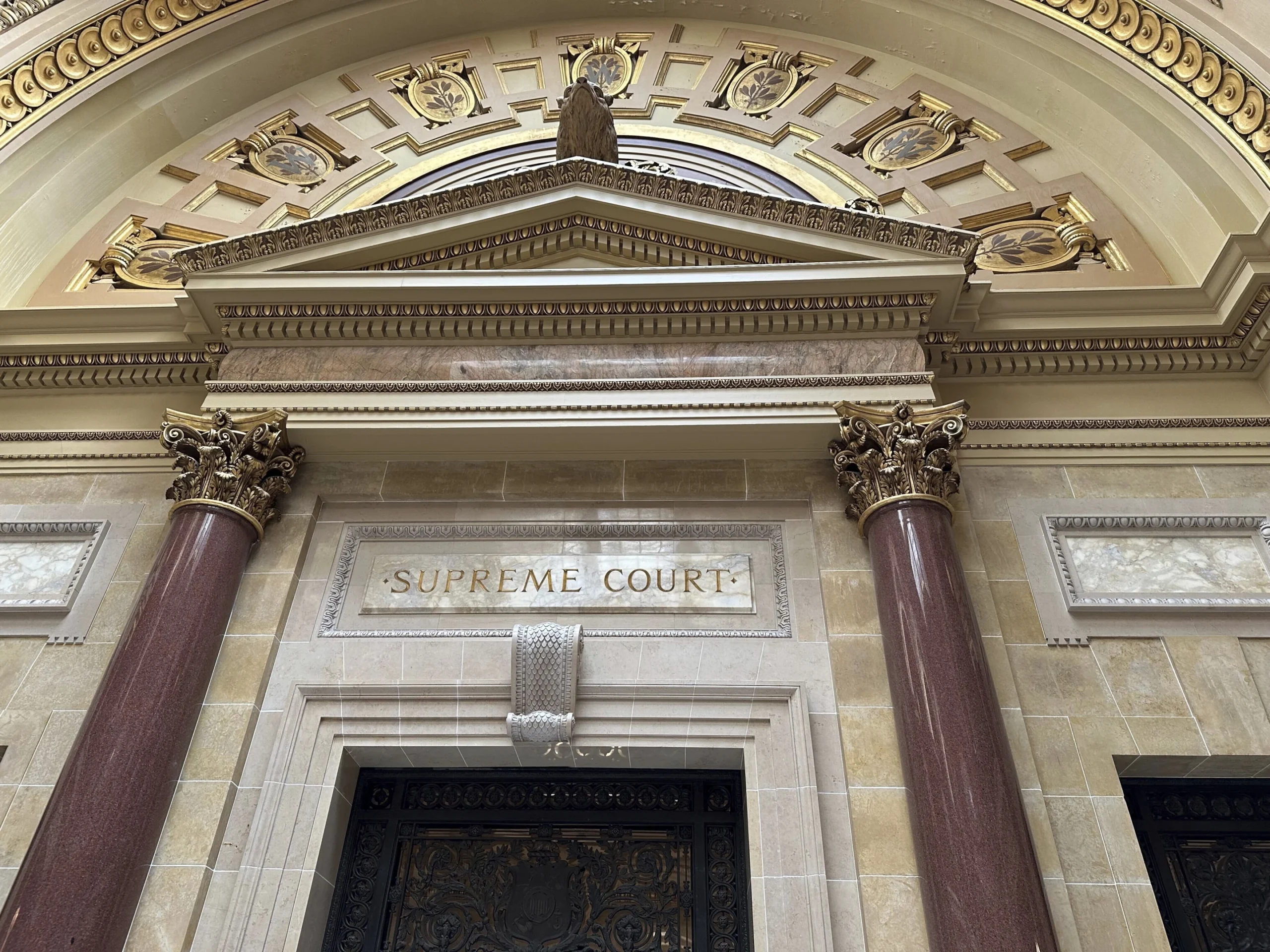(RNS) — Last month, Wisconsin’s Supreme Court decided that Catholic Charities and its nonprofit subsidiaries in the Diocese of Superior must continue to pay into the state’s unemployment compensation fund because they are not operated primarily for religious purposes. That sets them apart from churches per se, which under Wisconsin law are exempt from the tax.
Why is this important? Because it’s the latest front in the right-wing legal establishment’s ongoing campaign to enable religious claims to trump government rules and regulations, from securing exemptions from public health mandates (such as requiring COVID-19 and other vaccines) to anti-discrimination laws to removing restrictions on religious expression by government workers to public funding of religious institutions.
This spiritual libertarianism is of a piece with libertarianism in the economic sphere. Among the conservative legal outfits leading the campaign is the Becket Fund for Religious Liberty, which is representing Catholic Charities in this case.
After the Wisconsin decision, Becket announced it would be appealing to the U.S. Supreme Court.
At the heart of Becket’s case is the claim that, because the social services provided by Catholic Charities and its subsidiaries are integral to the mission of the Catholic Church, the nonprofits’ operations must be considered “primarily religious” in their operations, as state law requires. (This notwithstanding the fact that back in 1972, when the organization was deemed to be subject to the unemployment compensation law, it identified its operations as “charitable,” “educational,” and “rehabilitative,” not “religious.”)
In fact, the Wisconsin Court of Appeals and now the state’s Supreme Court acknowledged in their rulings that serving the poor and needy is integral to the motivation and belief of the church, under whose aegis Catholic Charities operates in the Superior Diocese. As the Supreme Court’s majority opinion put it, “A church’s purpose is religious by nature, and this focus is reflected in all of its work, including any sub-entities it oversees.”
What the Wisconsin courts rejected was the argument that, so long as a person or institution articulates a (sincere) religious purpose, the matter is settled. To the contrary, the courts found, an activity can itself be deemed secular regardless of the motivation behind it.

The entrance to the Wisconsin Supreme Court chambers in the state Capitol in Madison, Wis. (AP Photo/Todd Richmond)
The government, we should note, discriminates between religious and secular operations all the time. For example, public funding may provide school bus transportation and nonreligious textbooks to parochial schools, but it may not help refurbish worship space. Indeed, much of the funding of Catholic Charities comes from government agencies, but the establishment clause forbids training of Catholic clergy.
The constitutional obligation to distinguish between religious and secular operations is precisely why “primarily religious” is used as a criterion in employment law by the federal government and every state in the union. The spiritual libertarians would like to efface this distinction, along with other long-standing features of establishment clause jurisprudence.
Thus, this very week, the Oklahoma Supreme Court heard oral arguments in a case challenging a state school board’s decision to permit the establishment of an online public charter school run by the Catholic Archdiocese of Oklahoma City.
In its decision, the Wisconsin Supreme Court notes that Catholic Charities failed to identify “how the payment of unemployment tax prevents them from fulfilling any religious function or engaging in any religious activities.” Indeed, it seems (to be charitable) ironic that entities dedicated to helping those in need should seek to wriggle out of their obligation to help, well, those they make needy by putting them out of work.
My friend Michael Sean Winters, the National Catholic Reporter’s political columnist, is unhappy with the decision but (no spiritual libertarian himself) thinks it might have been warranted in the absence of the Wisconsin church’s own Unemployment Pay Program. That program is, however, purely voluntary — and Catholic Charities did not claim it as a basis for being exempted from the state’s program.
Contrary to an assertion made in a report on the case by the Catholic News Agency, Wisconsin law does not allow religious organizations “to opt out of the state’s unemployment system if they can provide comparable services through a private, non-state system.”
In a telephone interview, Wisconsin unemployment attorney Victor Forberger noted that fully 10% of all workers in the state work under the aegis of religious bodies — including employees of hospitals, nursing homes, schools and colleges. The unemployment benefits to which they are entitled act powerfully to mitigate the economic impact of recessions such as occurred during the COVID-19 pandemic, he said.
Moreover, on the basis of the arguments made on behalf of Catholic Charities, rejecting the “primarily secular” criterion could, in his view, be used to exempt faith-based nonprofits from having to pay employers’ Social Security taxes.
“If the Catholic Church wins its exemption here, it’s undermining society as a whole,” Forberger said. “I really worry that if the Supreme Court takes this case up, it will lead to a very significant and dire change to how our society operates.”
Let there be no mistake. The conflict here is between spiritual libertarianism and the common good.






